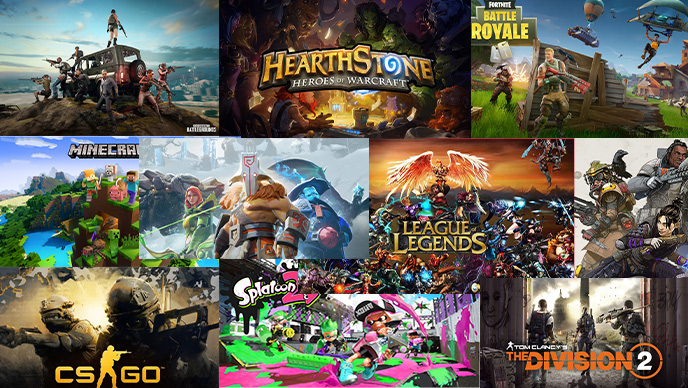Why Do Some Games Stand the Test of Time? Exploring Legacy Games That Live On
Some games never seem to fade. Year after year, generation after generation, people keep coming back to the same titles, the same boards, the same games.
It’s not nostalgia alone that keeps chess, fighting games, and digital games alive. There’s something deeper, something about the way these games continue to challenge, surprise, and satisfy people’s need for mastery.

Games That Reward Mastery
One of the clearest reasons why certain games stand the test of time is their focus on skill development. Games like chess haven’t changed in centuries, but their depth ensures no two matches feel the same.
Read: Surf the Internet Web Browser On Nintendo Switch
Each game is a test of patience, foresight, and adaptability. The same can be said of fighting games, where timing, reflexes, and precise execution separate casual players from experts.

Digital games also thrive on this blend of skill and strategy. Unlike pure chance-based games, these titles reward study, practice, and long-term learning. Communities build around these games because they offer something meaningful and positive: a constant opportunity to improve.
Worth Reading: 10 Best Upcoming Game Sequels in 2025
That’s also why the experience of playing online has remained relevant over the years. This digital extension of a classic game combines psychological strategy with mathematical reasoning.

It doesn’t survive because of novelty; it survives because it evolves while keeping its core mechanics intact.
Check: Valorant to CSGO Sensitivity In 2025
Players recognize that skill and decision-making still matter. And that’s part of the reason poker online continues to hold its ground, even in an increasingly crowded digital entertainment world.
A deeper comparison of how digital games have adapted can be found, analyzing the subtle differences between crypto-based games and traditional formats. Understanding these nuances helps explain why certain forms endure while others fade.
Don’t Miss: How to Fix PS5 Black Screen in 2025
Balancing Luck and Skill
Not every game that lasts is purely skill-based. What connects these legacy titles is their unique blend of chance and control. In games, players cannot influence the gamers they’re dealt, but they can control how they respond.
Recommended: How to Use Flight Simulator in 2025
In chess, there’s no randomness, but in fighting games, even the best player can be caught off guard by an unexpected move.

These experiences balance unpredictability with mastery. That’s the hook. People rarely return to games that feel completely scripted. They come back to ones where their decisions change the outcome, even if luck sometimes plays a part. This keeps communities vibrant. It encourages people to learn, adapt, and share strategies.
Look: Watch Disney Plus on Switch [Stream Disney+ on Switch 2025]
It’s why games online continue to be part of conversations about games with staying power. The combination of psychology, strategy, and calculated risk creates a game environment that players respect. They know they’ll never fully master it, and that’s the point.
Community is Key
Games that last aren’t just games. They’re ecosystems. Chess has clubs, online forums, books, and tournaments. Fighting games have arcades, esports, and passionate local scenes. Digital games thrive on forums, strategy guides, and streaming platforms.

Games, too, benefit from this communal energy. Online platforms host global competitions, live chats, and strategy hubs where players refine their craft together.
Read: Top 10 Flight Simulators in 2025 [PS5, PS4, Xbox & Windows]
This sense of shared pursuit, whether it’s achieving mastery or simply enjoying the challenge, keeps these communities alive and growing.
Here’s a quick breakdown of why these games continue to thrive:
| Game Type | Why It Lasts | Core Skills Developed | Player Benefits |
| Chess | Pure strategy, endless depth | Critical thinking, planning | Enhances patience and problem-solving |
| Fighting Games | Execution, timing, evolving meta | Reflexes, pattern recognition | Builds resilience and adaptability |
| Digital Games | Strategy, adaptability, community | Resource management, foresight | Encourages creative strategies |
| Games Online | Skill, psychology, risk management | Decision-making under pressure | Sharpens mental discipline and reading opponents |
Why It Still Matters Today
Legacy games like these continue to capture attention because they respect the intelligence of the player. They offer no shortcuts, no easy victories. They reward patience, learning, and experience. In a fast-moving digital world where trends change weekly, these games provide something solid to hold onto.
Recommended Read: 10 Best VR Boxing Games in 2025 [You Should Try Now]
Games online serve as a great example of how tradition and innovation can coexist. While the games remain the same, the platforms and players continue to evolve.

Understanding the difference between crypto-based formats and traditional ones highlights how even within legacy systems, there’s room for adaptation. It’s less about chasing trends and more about refining what already works.
Checkout: An Unidentified Error Occurred PS5 Issue in 2025
In the end, the games that stand the test of time share this in common: they respect the player. They challenge us. They grow with us. And they remind us that some things, whether it’s strategy, patience, or simply the joy of playing well, never go out of style.
The Psychology Behind Longevity in Games
What makes a game truly timeless often comes down to human psychology. Games that endure typically satisfy core psychological needs: competence, autonomy, and connection.
Competence comes from the pursuit of mastery, whether learning chess openings, refining combos in fighting games, or reading opponents in games online.

Autonomy is fulfilled by the freedom to make meaningful choices, where decisions directly impact outcomes. Connection grows from communities, whether offline or digital, where strategies, experiences, and stories are shared.
Don’t Miss: 6 Most Awaited Game Sequels in 2025 [Upcoming Games]
Understanding how these elements intersect explains why legacy games don’t just survive, they thrive. This framework also helps readers think critically about newer games, evaluating whether they offer fleeting excitement or the enduring satisfaction that defines the classics.


![16 Most Famous Discord Bot in 2025 [Improve Discord Server] 15 Most Famous Discord Bot [Improve Discord Server]](https://blog.omggamer.com/wp-content/uploads/2025/10/Most-Famous-Discord-Bot-Improve-Discord-Server.jpg)
![Best 30 Cat Pokemon List in 2025 [Grey, Black, Purple, Blue] 16 cat-pokemon-list](https://blog.omggamer.com/wp-content/uploads/2025/10/cat-pokemon-list.jpeg)
![Awaken Chaos Era Tier List [November] 2025 17 Awaken Chaos Era Tier List](https://blog.omggamer.com/wp-content/uploads/2025/10/Awaken-Chaos-Era-Tier-List.jpg)
![[Solved] How to Fix: Discord Screen Share Audio in 2025 18 Discord Screen Share Audio](https://blog.omggamer.com/wp-content/uploads/2025/10/Discord-Screen-Share-Audio.jpeg)
![5 Best PS5 Tennis Games in 2025 [You Must Try] 19 Best PS5 Tennis Games](https://blog.omggamer.com/wp-content/uploads/2025/10/Best-PS5-Tennis-Games.jpg)
![[Easy Steps] How To Unban Someone On Discord in 2025 20 How-To-Unban-Someone-On-Discord](https://blog.omggamer.com/wp-content/uploads/2025/10/How-To-Unban-Someone-On-Discord.png)


